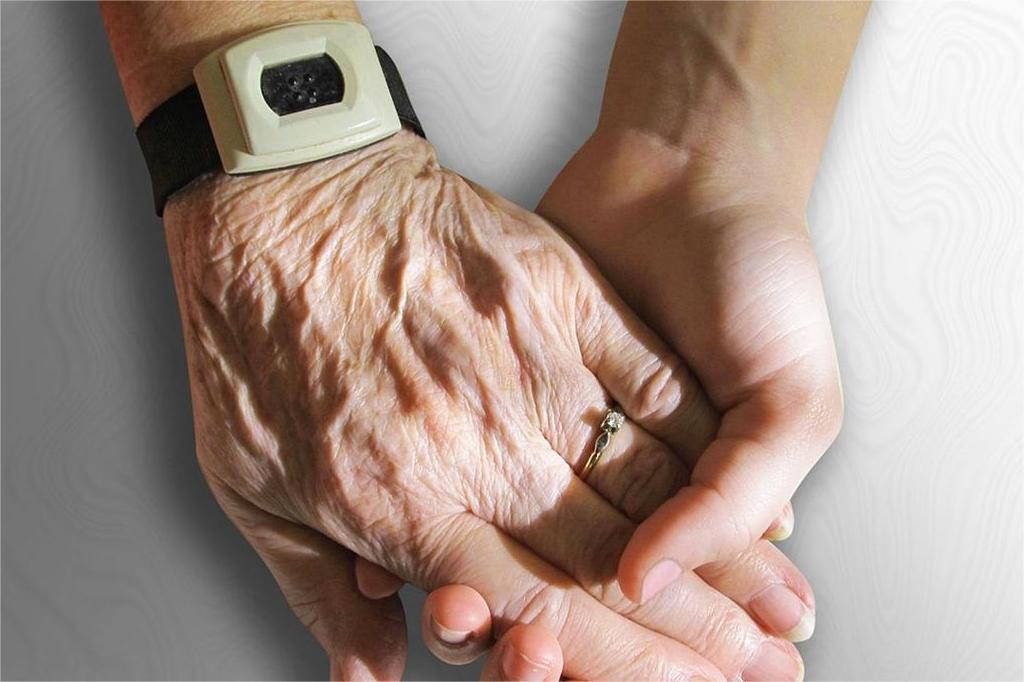Low blood oxygen is a very real and serious condition that many people live with every day. However, it is not nearly as spoken about as it should be because having adequate blood oxygen levels is vital to your body's overall health and function.
How much blood oxygen should you have?
An "ideal blood oxygen level is between 95% and 99%" (1), ensuring that all the body's cells have access to a sufficient supply of oxygen in order to function. This oxygen moves around the body via the bloodstream, which is why it is called blood oxygen'. Sometimes, blood oxygen levels below 95% are normal, such as in people who have a lung disease, like pneumonia. However, the majority of people with no known lung problems should have blood oxygen levels of 95% or above.
What causes low blood oxygen?
Low blood oxygen levels are caused by an insufficient intake of air into the body. When you inhale, you take oxygen into your lungs, which then moves into your bloodstream. It replaces the waste gas carbon dioxide, which leaves your body when you exhale, allowing your cells to benefit from the intake of fresh oxygen. This process is called gas exchange.
However, if you are not able to take enough air in, your blood oxygen levels drop below what is healthy. Typically, conditions that impact your breathing and make it more difficult for your body to take in and then circulate oxygen are to blame for low blood oxygen.
These conditions include (2):
● Asthma, which narrows the airways into the lungs.
● Anaemia, which causes a lack of red blood cells to carry the oxygen.
● Emphysema, which reduces the surface area available for gas exchange.
● Pneumonia, which inflames the air sacs in the lungs.
● Congenital heart defects, which allow blood clots to block blood supply.
● Sleep apnea, which increases the risk of high blood pressure.
● Acute respiratory distress syndrome (ARDS), which builds up fluid in the lungs, stopping them from taking in enough air.
As well as having any of these conditions, signs that you are suffering from low blood oxygen include:
● Headaches.
● Shortness of breath.
● Restlessness.
● Rapid heart rate.
● Confusion.
● Whiteish or blueish skin.
● Chest pain.
● Dizziness.
● Coughing or wheezing.
● Tiredness.
Are low blood oxygen levels dangerous?
Low blood oxygen, also known as hypoxemia', can be incredibly dangerous, especially if it is not diagnosed and then monitored. Typically, any blood oxygen level below 95% can be considered dangerous, though the impact on your health grows larger the lower the level goes. Blood oxygen levels of below 90% are considered concerning enough to warrant a stay in hospital until doctors can stabilise your levels.
Hypoxemia can cause people to pass out, collapse, struggle to breathe, and even suffer brain death, in the most extreme cases. This is all caused by the fact that your body and brain need sufficient oxygen to be able to perform. If they do not get it because your lungs cannot take in enough air or your red blood cells cannot pump oxygen swiftly around the body, your health is likely to deteriorate.
"Severe oxygen deprivation can cause life-threatening problems including coma and seizures. After 10 minutes without oxygen, brain death occurs" (3), which results in the individual being put on life support to help them breathe. Brain death comas are the most extreme outcome of inadequate oxygen in the body, but it serves as a warning for how important it is to ensure that you take in and circulate enough oxygen via bloodstream.
Can you monitor your blood oxygen levels?
If you suspect or have been diagnosed with unhealthily low blood oxygen levels, you can monitor your blood oxygen levels with a variety of devices. Two of the most common blood oxygen monitors are the pulse oximeter and the continuous sleep monitor. A medical professional can advise you on which of the two is most appropriate for you to use, but both have their benefits for ensuring you keep track of your blood oxygen levels and combat potential hypoxemia.
"The pulse oximeter is a small, clip-like device. It attaches to a body part, most commonly a finger" (4), and measures your heart rate by monitoring your pulse and the oxygen saturation in your red blood cells. It does this by sending red light and infrared light into the bloodstream and then comparing how much is absorbed to determine the level of oxygen saturation. A lack of saturation implies low blood oxygen levels. The pulse oximeter is non-invasive and pain-free, so they are commonly used to check for potential hypoxemia.
Continuous sleep monitors are devices designed to be used at home to "track a range of metrics, including heart rate, breathing rate, and even nightly blood oxygen saturation" (5). They are typically watches or rings that can be comfortably worn close to a pulse point in order to monitor REM sleep and overnight oxygen saturation levels. Data is collected at four intervals throughout the night and then digitally compiled to show you what your blood oxygen levels are. Continuous sleep monitors are typically advised for people who snore, as snoring is an indicator of abnormal breathing patterns.

What to do if you suspect low blood oxygen?
You should never delay seeking medical attention if you suspect you have low blood oxygen. All of the signs detailed earlier in this article have the potential to greatly impact your health, especially shortness of breath, fainting and rapid heart rate. Get in touch with your closest medical practitioner and report any of these symptoms to get a diagnosis.
Everyone needs to know what is going on with their bodies and the best way to get the correct advice is to visit a doctor as soon as you can. Once you know what is causing the problem, you can take the necessary next steps to monitor your blood oxygen.
References
1. https://www.adampractice.co.uk/wp-content/uploads/2021/03/Patient-Information-Leaflet.pdf
2. https://www.mayoclinic.org/symptoms/hypoxemia/basics/causes/sym-20050930
3. https://my.clevelandclinic.org/health/diseases/6025-cerebral-hypoxia#:~:text=Severe%20oxygen%20deprivation%20can%20cause,them%20breathe%20and%20stay%20alive.
4. https://www.healthline.com/health/pulse-oximetry
5. https://www.medicalnewstoday.com/articles/sleep-tracker
WRITTEN BY VIBEAT
Related Blogs
Recommended Products





